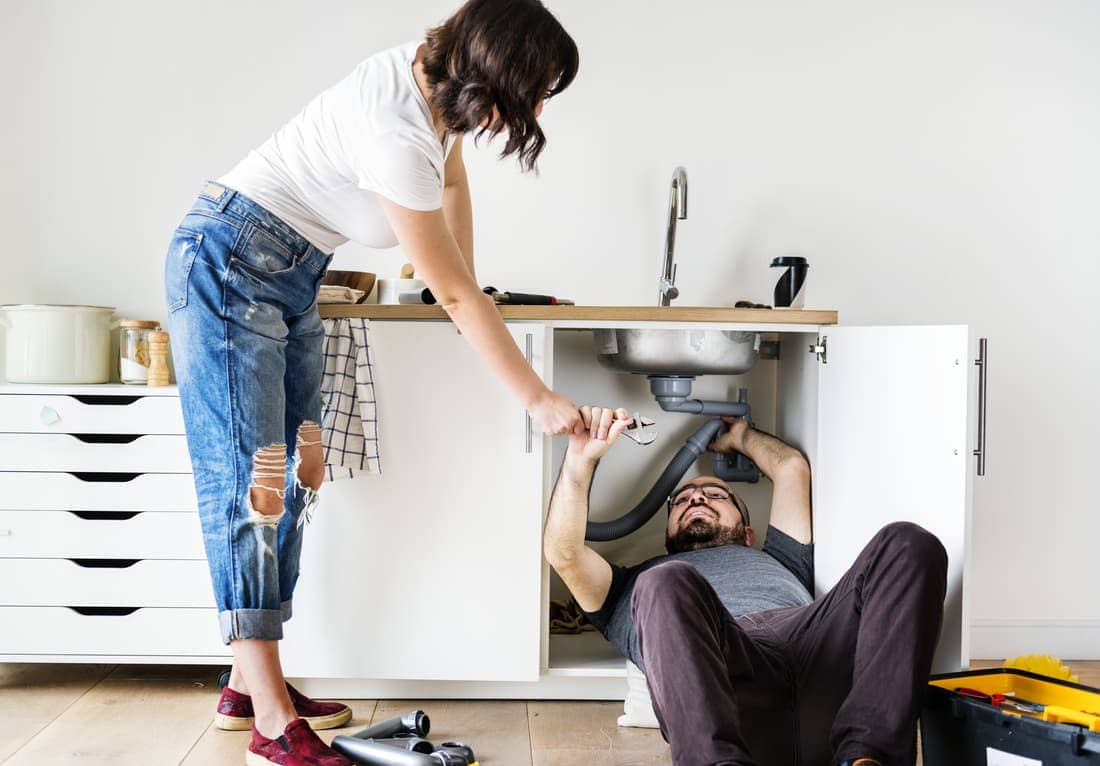The Home Selling Conundrum: Should I Sell My House As Is or Fix It Up?
October 3rd, 2023 / Author: Cesar GomezOne of the most fundamental questions people have when making plans to sell their house is – should I sell my house as is or fix it up? Each situation is unique, so there is no one right answer. The best choice for you will depend on several factors.
Among other things, you’ll need to research the state of the housing market and objectively assess the condition of your house. This article will take you through the steps needed to make the right choice in your specific situation, explain which repairs or improvements could be worthwhile, and what not to fix when selling a house.
The Preliminary Steps to Finding the Right Answer
One of the more common mistakes sellers make is investing in unnecessary repairs that don’t significantly up the value of their house. Even worse, some invest in expensive improvements that make the home more difficult to sell. Always remember that you are not selling the house in isolation but under the current market conditions in a specific location.
Think of anything you do to your house in terms of return on investment – the net income the investment will bring you vs the cost of the investment. In more straightforward terms, if renovating a room will potentially net you a few hundred bucks once you deduct the costs, it’s not worth it. When considering whether you should sell as is or make repairs, consider:
What’s the Market Like?
It’s easier to sell a house if the market is hot. And, as it stands right now, the market is scorching across most of the US. This means that you don’t need to invest in too many repairs. Buyers are more willing to disregard smaller flaws in a seller’s market. You should have no trouble selling without a realtor, either.
Conversely, in a buyer’s market, it’s much more difficult to sell a fixer-upper. If the market is truly slow, buyers may not even look at houses that need work. There’s one more caveat – even in a hot market, houses that need a lot of work done are likely to sell for less.
What Houses Have Sold in Your Area?
Real estate is all about location. Thus, you should look at the houses that have sold recently in your immediate area (but are also similar to your home). So, compare like for like - if you are selling a single-family home, look for single-family homes, etc. This can give you a sense of what the condition of your home needs to be in order to sell.
You can also go to a few open houses in your neighborhood and see how your home compares. Plus, it can be a guide to what improvements may be worth investing in. If you don’t have the time to check out houses yourself, ask your agent for a competitive market analysis.
Selling As Is vs Fixing It Up

When a house is lived in, it’s natural for some wear and tear to happen. A few leaky pipes, a bit of paint chipping, creaky stairs, and/or some wiring issues are small problems. These types of issues are worth fixing.
Sometimes, homeowners disregard such miner issues, thinking they won’t affect the price much. But these are exactly the types of repairs you should be making before selling. They don’t cost much and will increase the price. Plus, potential buyers may disregard some other problems if they see that the home is well taken care of.
Conversely, if you would need to make significant repairs – like dealing with severe water damage, a caved-in roof, non-functioning plumbing – it may not be worthwhile to repair everything. These types of issues cannot be solved easily. In such situations, it may be best to sell as is.
How To Sell a Home As Is
Selling a home as is hinges on two factors: setting a reasonable price and finding the right buyer. And remember that you are legally obligated to disclose any significant issues with the house that could affect the buyer’s willingness to buy your home.
When marketing your home, make it clear you making repairs is not negotiable. And the price should reflect the repairs the buyers will need to make, i.e., the more repairs needed, the lower you need to price it. As far as finding the right buyer goes:
Who Buys Homes As Is?
Most private buyers are not looking to take on major projects. They may be willing to buy fixer-uppers, but only if they need to deal with smallish issues. However, as we’ve mentioned above, these are the types of fixes you should personally make to get a better price.
Buyers that are willing to take on major projects are usually wholesalers, contractors and restoration companies, and investors. But not all companies that buy houses are the same – low-ball offers and being pressured into bad sales is not uncommon, so be wary of scams. Look for a company with a proven track record if you are going down this route.
What Repairs Are the Most Cost-Effective?

As we’ve stated multiple times, if there are small fixes you can make, make them. When it comes to larger repairs – the kitchen or bathroom are both a good place to start. Fixes and improvements to these rooms usually provide a good return on investment.
Other fixes that have a good return are those that are easy to spot – such as replacing doors or windows, putting on a fresh coat of paint (but try to make it a neutral color), repairing holes in the walls and the HVAC system, replacing carpets, etc. Structural problems are another matter.
Issues like a caved-in roof and sagging floors will seriously lower the price of your house. But they also cost a lot of time and money to fix. If the damage is severe and you have no intention of repairing it, it may not be worth investing in the smaller repairs but selling as is. Ultimately, it’s a balancing act – you get less money, but you also spend less money.
What Should You Not Fix When Selling a House?
Generally, you can avoid fixing small cosmetic issues. A few scratches on your floors or some water stains on a cabinet are probably not worth your time. But more importantly, think of where your home is located and don’t invest in luxurious improvements that may not pay off.
For instance, if you are selling a single-family home in an affordable neighborhood, there’s usually no point in trying to install an indoor pool. This is a hyperbolic example, but it demonstrates the point. While such improvements may theoretically increase the value of your home, it’s unlikely you’ll actually find a buyer who is willing to pay what you are asking.
I’m Worried About Getting a Low Price if I Sell As Is
If you’ve decided not to fix up your house, but are worried you’ll get low-balled if you decide to sell as is, you have a solution. SleeveUp Homes will buy your house in the state it’s in for top dollar. We aren’t wholesalers and don’t work with realtors, so we will always offer the best price and you won’t be paying any commission.
But you don’t have to take us at our word – request a no-obligation cash offer to see what we can do for you. We guarantee you can make a better deal compared to the other offers you’ve received. If you like what we offer, you can close in as little as 7 days. And if you end not liking it, you can always walk away.
SELL
YOUR HOUSE
If you want to sell fast and are worried about how long the traditional process takes, and the commission and fees involved, consider working with SleeveUp Homes.





 view all blogs by this author
view all blogs by this author Zachariah Peterson (69 blogs)
Zachariah Peterson (69 blogs)